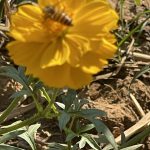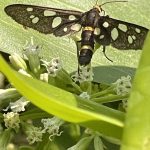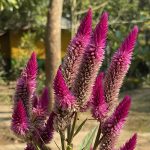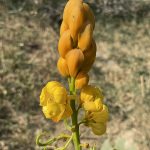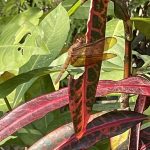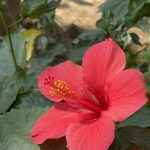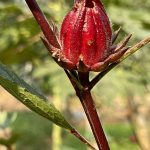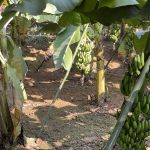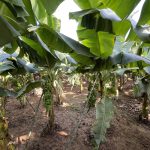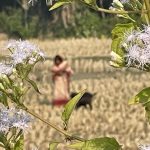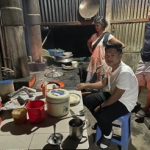In Ilford’s urban-dense, nature-depleted town centre you’ll find a group of people from the Vine Church Ilford striving to spread the “pollen of peace”.
Led by a team including Ruth and Peter Musgrave and Sheila Baldwin, the group are in the midst of creating a “pollinated pathway” to encourage butterflies and bees to spread within the town centre and to come from other places.
Peter, who has recently returned from a trip to Bangladesh, where he supports and draws nature inspiration from the Bangladeshi Taizé community, explains just how important butterflies and bees are in nature, and their correlation in spreading the Good News.
“Whenever you see a butterfly, it brings joy,” said Peter. “Our work in the town centre follows on from our weekly gardening club, which restarts in March, where we work with our local Salvation Army on its Malachi Place project which supports homeless people, who come to help us tend to our gardens.
“Everything needs some kind of pollination to spread. We have three very small gardens in Ilford town centre, and we work to highlight the value of butterflies and bees, and pollinated plants, which flower better. We’re also growing vegetables for food and use organic seeds because modern seeds developed using pesticides won’t attract butterflies.”
Peter went on to explain the importance of butterflies and bees.
“They’re essential to the eco system. They’re essential in keeping our eco system alive. Their work supports other insects, which supports other birds, mammals and bats, which supports their food and shelter.
“The previous government allowed a pesticide to be used in Britain, after Brexit, that meant that millions of bees were killed. Now the current government is moving forward with a complete ban on bee-killing pesticides.
“When pesticides are used, the pollination sequence is interrupted. In our gardens, we use organic seeds, which brings an oasis to the town. Seeds made using pesticides do not attract butterflies and bees.”
Peter likens the process of butterflies and bees to being Jesus to those in need in our communities. His passion for nature and the winged insects dates back to when he was a young student following reports on TV about the devasting Bhola cyclone which struck the then East Pakistan, now Bangladesh, and India’s West Bengal in 1970. As many as 500,000 people died. The following year came the Bangladesh genocide where up to 3 million Bengalis were killed.
Peter wanted to do something to help. He turned to Tower Hamlets, which has the largest Bangladeshi community in England and Wales, where he worked for many years as a youth worker. Bangladesh is one of four regions supported by Commitment for Life, the URC’s global justice programme.
In 1989, Peter, his wife Ruth and their three children got the chance to live and work in Bangladesh working with the Church of Bangladesh (COB’s) Social Development Programme. Ruth worked in women’s development, and they stayed until 1994.
Between 2010-2014, Peter again worked in Bangladesh through the Mennonite Central Committee (MCC), where he lived close to the Taizé community then in Mymensingh town.
He has maintained a relationship with the COB and the MCC and with the Taizé Community in Bangladesh, which has moved to a rural area on COB land.
“At one of the places where the Taizé community farm, you can see outside that farming area rice growing where pesticides are used. The difference between that land and the Taizé farming area is stark,” continues Peter.
“In other parts, you’ll see rows and rows of banana plants. The original flowers and plants that grew there have been eradicated along with the insects that pollinated them.
“What is attractive about the Taizé community garden is that they have lovely vegetables and fruit plants, which demand your attention because they have lots of lovely butterflies and bees buzzing around.
“I guess I’m like a butterfly popping from place to place, as is the Taizé community on that site. They’ve planted themselves, rooted in the community and attract people and butterflies.
“For example, a Muslim man named Hussain who lives in a slum area in Dhaka, the capital city of Bangladesh, has been known to the Taizé community for 40 years. He had polio as a child and they provided support and he travelled all the way by public transport, which was not easy, to spend Christmas with the Taizé community there.
“He’s attracted by what they do there and in turn the community respects him. He is a caring person and cares for people in his own area. He’s like a butterfly. Filling up with the pollen from the Taizé community and then spreading that pollen in his community, like the hymn The Pollen of Peace [by Northern Ireland songwriter Roger Courtney) says ‘Christ has sown the seeds of love. Let us spread the pollen of peace throughout our land’.
“As butterflies and bees get food from the plants that they need, people are nourished by the Taizé community and spread that nourishment to others in need. That’s what we try to do with our gardens in Ilford.”
Peter encourages us all to play our part in creating a pollen of peace in our communities.
“Churches can be come Eco Churches, Synods can become Eco Synods, and regardless of whether you have a garden or a patio, you can grow pollinator-friendly flowers,” he said.
In 2022, Vine Church Ilford’s eco work was recognised by the London Faith and Belief Forum and the church received a Sustainability Award from them. Vine Church Ilford members, Sheila and Peter, pictured, went to Westminster Abbey in November to receive the award, which included £500 to put towards the cost of the energy saving work.
Learn how your church can become an Eco Church.
Learn how your synod can become an Eco Synod. – all our synods are Eco Synods already: five already have a Bronze award.
Learn about pollinator-friendly flowers.
Discover more URC resources on caring for creation.
Images: Peter and Shiela/The Vine Church Ilford. All others, ©Peter Musgrave.


